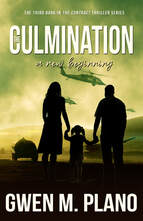
* * * * * * * *
A little spoken of tragedy in our world is the silenced voices of abused children. Voices silenced for a variety of reasons are a hindrance to well-adjusted lives and justice for these children. Their scars are invisible, etched in tiny hearts and minds forever.
I was born in 1946, the first year of Baby Boomers. Our parents adhered to firm rules of 1940s and 1950s etiquette and discipline. Mama and Daddy were firm believers in proper behavior from their offspring.
Some likely familiar phrases heard on a regular basis in our home included:
• Children should be seen and not heard.
• Children should not speak unless spoken to.
• Children should stand when an adult enters or leaves a room.
• Children will not talk back or sass their parents or other adults.
• Children will not begin a conversation with an adult; always wait for the adult to start the conversation.
These are only a few of the rules laid down for children in our family and culture to follow. Some of these often heard rules instruct children to be silent in certain situations involving adults. These instructions lay a perfect foundation for silencing children who are victims of abuse.
My mother was abusive from an emotional and verbal standpoint on a regular basis. Her discipline tended to be less abusive on a physical scale. My first concrete memories of her are around the time I reached three or four. This age creates a critical juncture as we raise our children. As their “independence” begins to surface, it conflicts with our desire to still be in control.
No different than other children, I wanted to tie my shoes, brush my hair, and dress myself. Mama countered by telling me I did these tasks “all wrong.” I needed to practice. But if she wouldn’t let me try, how was I to practice? The longer I heard I did everything wrong, the more frustrated I became.
Finally, one day I shouted, “But I want to do it!” Mama’s hand landed squarely on my cheek. Its stinging force shocked me. I could feel tears burning my eyes but I didn’t want to cry. Tears always upset Mama, and Mama upset was not a good thing.
“You know better than to talk back to me. I’ve told you before you just don't do these things right. Until you tie your shoelaces right, brush your hair the right way, and pick out matching clothes to wear, you will not do them.”
Repeated instances of these episodes and the possibility of another strike across the cheek taught me to keep quiet and follow instructions.
Finally, I became a silent child when it was Mama and me. I knew a losing battle when I saw one and by about the age of 9 or 10, people described me as the “well-behaved, quiet little Adams girl.” If our family, friends, and neighbors had only known what was behind my quiet demeanor.
Unfortunately, the abused child faces frequent threats. Mama threatened us with the sting of Daddy’s belt across our legs. Often she threatened to kill herself in front of us, all in an attempt to bring us into her control. It does not take long for such threats to aid the child in discovering a way to avoid them. Usually, silence is the perfect way to sidestep the threats of an adult.
Often the perpetrator of sexual abuse threatens a child with hurting siblings or parents if the child tells anyone. This behavior on the part of the adult shuts a child down with these threats. The child becomes a silent protector of his/her family placing the adult in control unless he or she slips up.
Children are savvy enough to realize when authorities come by the family home too often. This is a sure sign of trouble. Parents may threaten a child not to say or do anything that will cause the authorities to take the child away or arrest the parents. Once again, the child’s voice goes silent.
Our foster care system was established and continues in place to assist in caring for children made wards of the state. All too often the money provided foster parents is the attractor, not a desire to care for the neglected or abused children. Foster parents are not beneath threatening children placed in their care. Once more a child or children are silenced before help can intervene.
It is not uncommon that neglected, abused, or abandoned children are placed with family members. All too often the same behaviors described above on the part of adults are committed by those seen as loving relatives.
In 1977, a Seattle judge conceived of an idea to help children appearing in the court system. The judge felt he must render decisions about these children without enough background information. The judge felt citizen volunteers could serve as the voices of these children. And the National Court Appointed Special Advocate (“CASA”) program was born.
Today there are 951 CASA programs as well as guardian ad litem programs training volunteers. These volunteers assist children caught up in the foster care system. Because there are insufficient volunteers, judges assign CASA volunteers to the most difficult cases.
Unfortunately, CASA cannot help the child still caught up in abuse and neglect until they become wards of the state. Silent and forgotten they have little hope of changes occurring in their lives.
My call to action to you today is to be watchful and listening. If you suspect a child you know is abused or neglected, contact the social services office in your area or police in your area.
Whatever action we take to give the children in our community a voice with which to protect themselves is far better than no action at all. Children deserve better than being silenced by adults who don’t care.
* * * * *
Sherrey's website is a testimony to the healing process of writing honestly and boldly. If you'd like to write to Sherrey, her email address is [email protected]. Below are anthologies in which she is featured.








 RSS Feed
RSS Feed